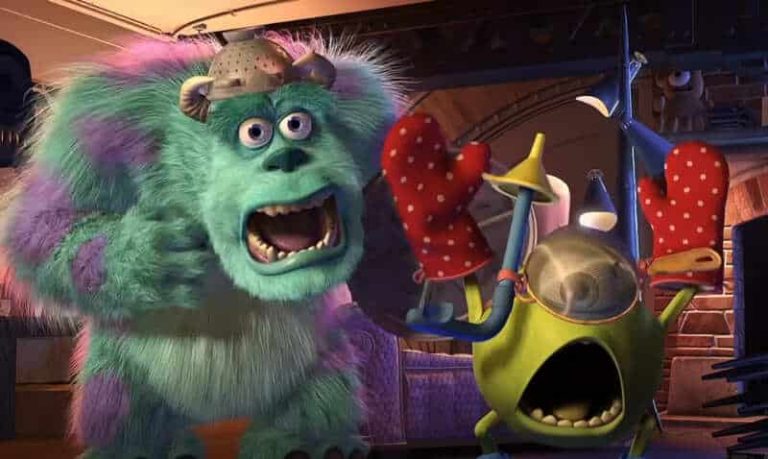Actor DPharaoh Woon-A-Tais Powerful Red Handprint Statement At The Emmys
The 2024 Emmys represented a landmark for Indigenous North American representation at the annual awards ceremony. Indigenous Canadian actor D’Pharaoh Woon-A-Tai became the first Indigenous Canadian actor to be nominated for lead actor for his role as Bear Smallhill in the comedy-drama series Reservation Dogs, while Indigenous American actresses Kali Reis and Lily Gladstone became the first Indigenous actresses to be nominated for acting Emmys.
While Woon-A-Tai garnered attention for both his skillful acting and his historic nomination, he also attracted attention when he arrived on the red carpet last night. He wore an all-black suit and had a red handprint painted over his mouth. While the all-black suit isn’t uncommon at the Emmys, a painted red handprint is more out of the ordinary. What statement was Woon-A-Tai making with that red handprint? Let’s look into his career, his nomination, and the tragic history of missing and murdered Indigenous women to find out.
D’Pharaoh Woon-A-Tai’s Career Thus Far
Born in Toronto, Ontario, Canada, on September 19, 2001, D’Pharaoh Woon-A-Tai is of mixed-race Anisininew (Oji-Cree), Chinese-Guyanese, and German heritage. The Anisininew peoples are a large group of Canadian First Nations peoples whose culture and language descend from a unique blend of Anishinaabe and Cree traditions but who are considered distinct from both groups. While growing up in Toronto’s Esplanade neighborhood, Woon-A-Tai and his family would often visit his father’s Anisininew relatives in the Kitchenuhmaykoosib Inninuwug First Nation in Northwestern Ontario.
Woon-A-Tai began his acting career in 2018 with a recurring role on the children’s TV show Holly Hobbie in 2018. He also made cameo appearances in shows like Creeped Out, Tribal, and Murdoch Mysteries and made his feature film debut in the 2020 movie Beans. In 2021, Woon-A-Tai began starring as one of the main characters on Reservoir Dogs, a Hulu series with an entirely Indigenous creative team, crew, and main cast. In an interview with The Canadian Press, Woon-A-Tai said that he appreciated how Reservation Dogs broke many common stereotypes about Indigenous people and was a show where Indigenous people told their own stories rather than letting others tell those stories for them.
Reservation Dogs and Woon-A-Tai’s Emmy Nomination
Running three seasons on Hulu between August 2021 and September 2023, Reservation Dogs is a comedy-drama series that follows four Native teenagers on a reservation in rural Oklahoma who decide to start robbing, stealing, and saving up money so they can leave the reservation and make their way to California. Known collectively as the Rez Dogs, the four main characters, Bear (Woon-A-Tai), Elora (Devery Jacobs), Willie Jack (Paulina Alexis), and Cheese (Lane Factor), contend with a rival gang, the local police, and other obstacles as they carry out their plans.
The series has performed extremely well with critics and audiences. The series holds a 99% Fresh critical score and 91% Fresh user score on Rotten Tomatoes and a 89/100 average critical score and 7.6/10 user score on Metacritic. The show has won high praise for its strong Indigenous representation both behind and in front of the camera, its authentic take on the realities of modern-day Indigenous life both on and off reservations, and its freshness and originality.
Woon-A-Tai’s performance as Bear, the self-appointed leader of the Rez Dogs, earned him an Emmy nomination for outstanding lead actor in a comedy series this year. The nomination made him the first Indigenous North American actor to be nominated for an acting Emmy; he shared this distinction with Lily Gladstone and Kali Reis, who were nominated for Outstanding Supporting Actress Emmys for Under the Bridge and True Detective: Night Country, respectively. While none of the three ended up taking home Emmys, their three nominations marked a milestone in representation for Indigenous performers at the Emmys.
The Meaning Of The Red Handprint
At the Emmys, Woon-A-Tai had a red handprint painted over his mouth to raise awareness of and show solidarity for Missing and Murdered Indigenous Women (MMIW). According to the U.S. Bureau of Indian Affairs, the murder rate for women on reservations in the United States is 10 times higher than the national average, and murder is the third most common cause of death for Native women. A 2016 National Institute of Justice (NIJ) study found that 84.3% of Native American and Alaska Native women have suffered violence in their lifetimes. In Canada, Indigenous women are 12 times more likely to go missing or be murdered compared to non-Indigenous women, according to the Canadian government.
The MMIW movement raises awareness of Indigenous women who go missing or are murdered across North America. According to the group Native Hope, the red handprint stands for “all the missing sisters whose voices are not heard. It stands for the silence of the media and law enforcement in the midst of this crisis. It stands for the oppression and subjugation of Native women who are now rising up to say #NoMoreStolenSisters.” The red color also reflects the beliefs of several Native American peoples that spirits can only see the color red; by wearing red, those who support justice for MMIW “can call back the missing spirits of our Indigenous sisters and daughters and lay them to rest.”
According to an Instagram post Woon-A-Tai made about his Emmys appearance, he wrote, “I did this for all of those who ain’t here, not 4 me, not 4 y’all.” Woon-A-Tai’s action certainly caught the attention of viewers and media reporters, though, with one X user stating that him showing solidarity with missing and murdered Indigenous women was “devastatingly strong.”
Final Thoughts
The 2024 Emmys brought a lot of attention to deserving Indigenous North American actors, including D’Pharaoh Woon-A-Tai, Lily Gladstone, and Kali Reis. Woon-A-Tai, in turn, used his spotlight to make a powerful statement on Indigenous people whose lives are undervalued and whose voices are underheard.
By wearing the red handprint symbol of the Missing and Murdered Indigenous Women movement over his mouth, he used his platform to show support and solidarity for the thousands and thousands of Indigenous women across North America who have experienced violence at much higher rates than the general population. Woon-A-Tai’s actions show how a celebrity can use their platform and spotlight to bring awareness to pressing social issues and stand up for the unjustly underrepresented and ignored.
For More Great Content
Are you desiring top-tier content that covers everything? From thrilling sports and intoxicating entertainment news to gaming tips and professional betting advice, Total Apex covers it all. Delve into our no-fluff articles to stay ahead of the game with the latest sports action, uncover the hottest trends in entertainment, and get the latest scoops in the gaming industry that will take your experiences to the next level.
Finally, our betting advice will give you a decisive edge over the competition and increase your odds of beating the books. Whether you’re looking to stay updated or gain a competitive edge, Total Apex is your one-stop shop for all things compelling and relevant. Don’t forget we cover Fantasy Sports, too!
Check out all our sites: Total Apex Sports, Total Apex Fantasy Sports, Total Apex Entertainment, Total Apex Sports Bets, and Total Apex Gaming. Out of the ashes of obscurity will rise a beast. Always remember to Respect The Hustle! Follow us on Twitter/X @TotalApexSports to stay informed.






